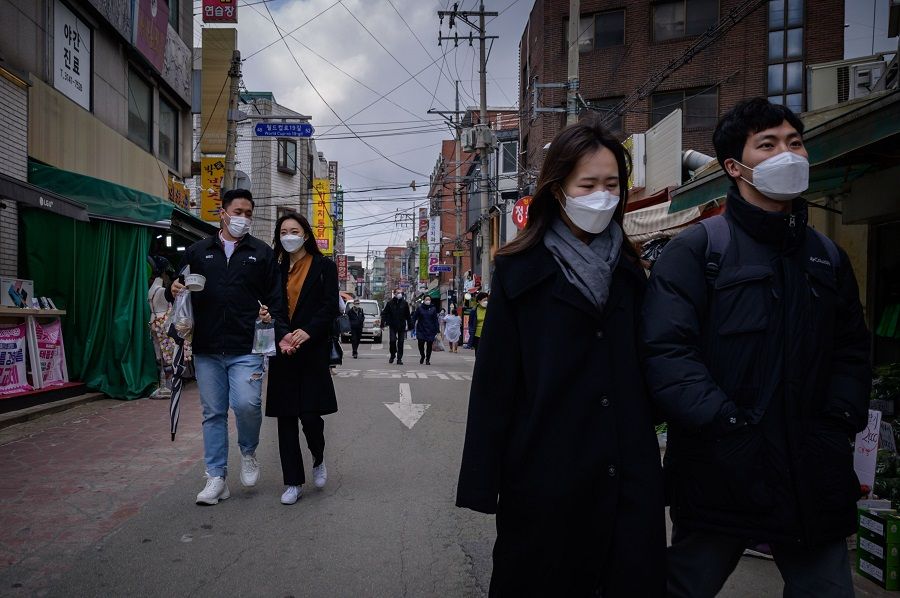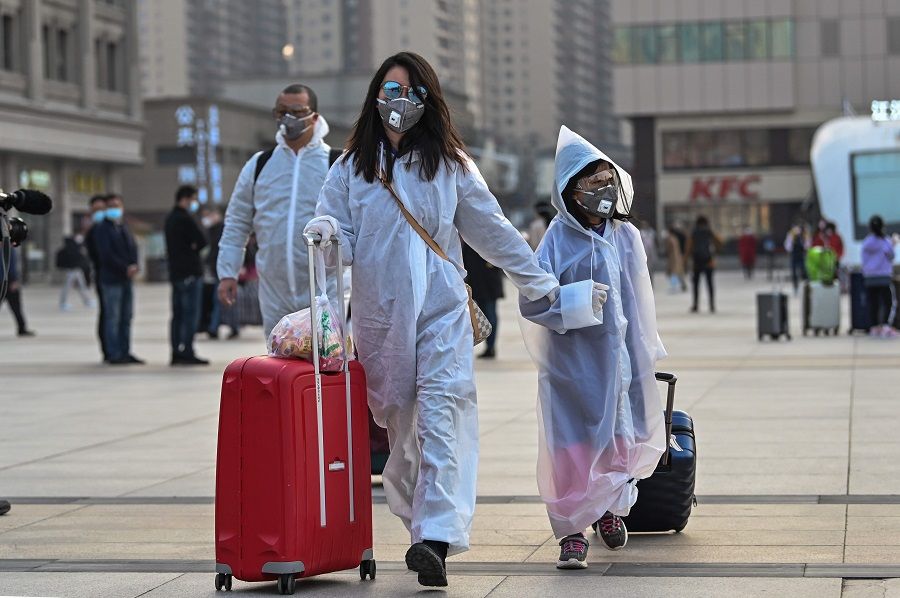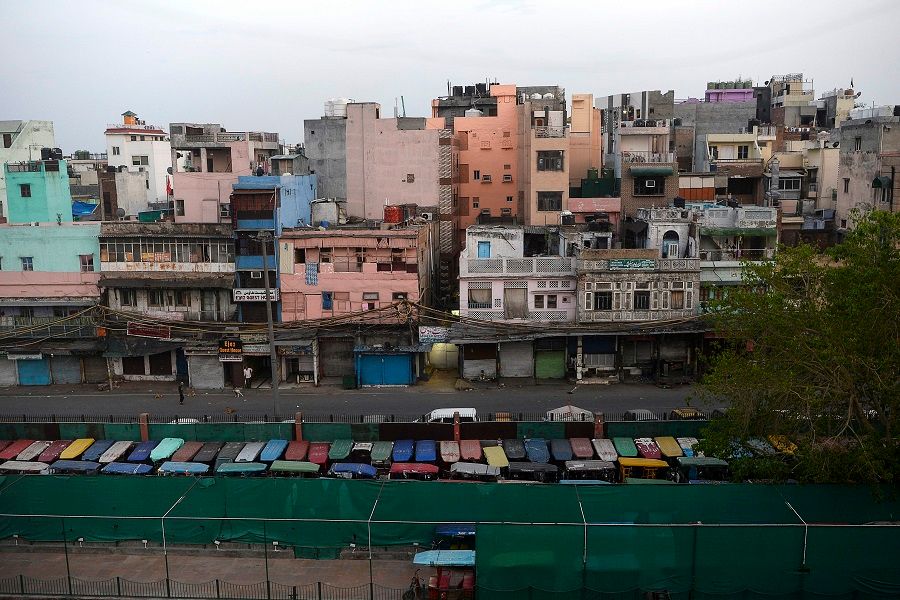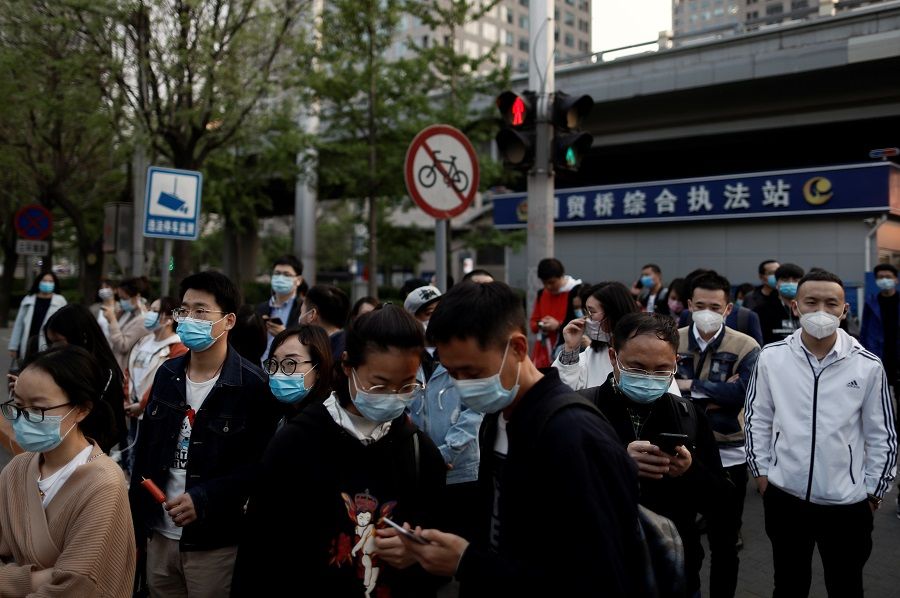Covid-19: Is deglobalisation on the cards?

Countries are embedded to different degrees in an increasingly globalised world. Regional interconnectedness and global industrial chains continue to expand as countries grow more and more interlinked. In short, globalisation is a complex, holistic system in which the countries of the world are interdependent.
In Chinese history, the old Silk Road linking East and West can be considered one of the earliest forms of globalisation. Along this ancient trade route, people from all over the world traded in silk, tea, spices and chinaware as they forged business and cultural ties. Contemporary globalisation has come a long way, being now characterised by trade facilitation, investment liberalisation and interconnectedness. The economic activities of different countries have never been as highly intertwined as they are today. As the New York Times columnist Thomas Friedman, the author of The World is Flat, has written: " ... [O]ur planet today is not just interconnected, it's interdependent - and in many ways even fused."
Lack of effective global governance
Amid ever-greater interconnectedness, regrettably, the world has yet to forge an effective system of global governance that is in keeping with the times. Such an overarching structure would have ensured a regulatory system amid greater economic integration, and helped guard against systemic risks that come with globalisation, such as the spread of viruses.
...countries among the top 20 international destinations for Chinese tourists including the US, Japan, Australia, Italy, Turkey, France, Germany and Spain, have been hit by Covid-19.
China was the country where the outbreak first began. From there the disease quickly spread beyond Chinese borders. Looking at it from the prism of trade, among China's top 10 trading partners, seven countries and territories (namely the European Union, the US, ASEAN, South Korea, Australia, Brazil and Canada) got hit by the subsequent round of the Covid-19 outbreak.

From the angle of travel, countries among the top 20 international destinations for Chinese tourists (according to rankings compiled by Trip.com Group Limited), including the US, Japan, Australia, Italy, Turkey, France, Germany and Spain, have been hit by Covid-19. In Southeast Asia, which is another key regional destination for Chinese tourists, confirmed cases of the disease are also rising in number rapidly, which paints a bleak picture of how the counter-pandemic efforts are faring.
It was on 11 March that the novel coronavirus situation was finally declared a global pandemic by the World Health Organisation. As at 29 April, the epidemic that originated in Wuhan, China, had spread to over 200 countries and territories around the world, with a global total exceeding three million confirmed cases, and the number of those who succumbed to the disease above 200,000. The figures are still climbing as I write.
If there are no safeguards in place for risk control and management, would it still be in the interest of each country (especially a poor country that has inadequate risk mitigation capabilities) to keep pursuing a globalisation characterised by interconnectedness?
A clear lesson from what we have witnessed today is that in our globalised world, one faces health challenges not only from within one's country, but also from beyond. Thus when a country is still in the early stages of a dangerous outbreak, an alarm must be raised immediately. The international community must then swiftly adopt preventive measures which include those that physically prevent the virus from spreading beyond national borders. If countries fail to implement epidemic prevention and control measures in a timely manner, the disastrous outbreak of a contagious disease in one country could very likely develop into a global public health catastrophe. That would be a calamity for every nation, territory and individual involved, as we have seen.

National resilience comes to the fore
The severity of the current pandemic will no doubt spur countries to do a rethink, and comprehensively evaluate the benefits and risks of globalisation. There are big questions to be asked. If there are no safeguards in place for risk control and management, would it still be in the interest of each country (especially a poor country that has inadequate risk mitigation capabilities) to keep pursuing a globalisation characterised by interconnectedness? Do the economic and trade benefits of globalisation outweigh the impact of the potential systemic risks that accompany it? How should each country safeguard domestic public health while driving economic globalisation forward?
Globalisation emphasises competition and efficiency, but it neglects the importance of the resilience and self-restorative capacity of each individual country.
A sign of a pivot back to the nation-state is evident in the way countries looked inward or largely sought bilateral assistance, rather than looked to multilateral organisations during the pandemic. As a multilateral organisation that steers global public healthcare, the World Health Organisation is plagued by insufficiency of manpower, finances and technical capabilities. It will, therefore, find it difficult to coordinate the counter-pandemic measures of the international community and provide relevant technical support. The truth is: the pandemic has made obvious the poor leadership of many international multilateral organisations, including the United Nations, the EU and ASEAN. In the face of the world-crippling disease, the resilience of sovereign states and their capacity to bounce back from the crisis thus become particularly vital.
Globalisation emphasises competition and efficiency, but it neglects the importance of the resilience and self-restorative capacity of each individual country. When a pandemic hits, the less resilient nations (especially those with weak public health systems) are bound to see their systems crash under the sheer weight of sharply increasing patient numbers. Indeed, the current viral situation is putting the resilience of each country to the test. From its public health system, the steadiness of its economic operations, the efficiency of its administrative system, to the production capacity of its manufacturing sector, as well as its social cohesion, every facet is being pushed to the brink.
Deglobalisation on the cards?
North Korea closed its borders on 22 January. Wuhan, the first epicentre of the pandemic, went into lockdown on 23 January. As time went by, in order to contain the spread of the novel coronavirus, apart from China, Russia, India, the EU countries, the US, and many Southeast Asian countries implemented myriad forms of lockdowns and border restrictions The world in the grip of the coronavirus is in a "Great Lockdown", according to the IMF; but perhaps the Financial Times columnist Martin Wolf offers us a more fitting description when he speaks of the "Great Shutdown". No one can predict how much longer this ominously dubbed situation will persist.

Governments find themselves compelled by the Covid-19 situation to adopt unilateralist and isolationist policies for the sake of self-preservation. This is realpolitik at work in our present age of 21st-century globalisation, a great irony for the world. The pandemic has sent the globalised world back to its more archaic state, one in which nations wall themselves off and keep to themselves. Not only do countries go into lockdown one after another, each one for itself, some even benefit themselves at the expense of neighbouring states as they vie aggressively to secure limited resources, including medical supplies, food and industrial products.
...whatever joint effort there could be between all countries for tackling the common crisis - remains just a sparkling fairy tale.
As Ursula von der Leyen, President of the European Commission, admitted on 2 April in an open letter published in Italy's La Repubblica, "It must be recognised that in the early days of the crisis, in the face of the need for a common European response, too many have thought only of their own home problems." In other words, during the early stage of the fight against Covid-19, the member states of the EU demonstrated a lack of the spirit of cooperation among themselves. Europe failed to stand together with Italy as European countries were each suffering horrendous damage from the onslaught of the virus.
Other than vacuous promises and visions, no country or international multilateral organisation has rolled out substantial, effective global measures so far for dealing with the pandemic. The mutual cooperation that the international community looks forward to in the age of globalisation - whatever joint effort there could be between all countries for tackling the common crisis - remains just a sparkling fairy tale. Major powers like the US and China are even pointing fingers, shifting the blame for the pandemic to each other.
A new kind of global governance system needed
It is clear that the Covid-19 pandemic will be a turning point for globalisation. The voices of anti-globalisation will become the mainstream. Countries that benefit the most from globalisation (such as China) will need to think about making changes to their development strategies in response to the pandemic's impact and the shifting sands of the global gestalt.
On the contrary, we have to rely on a physical, manufacturing economy of substantial strength to make these things.
Covid-19 has disrupted global industrial chains, even as it continues to rock the international financial market and deliver a stunning blow to the global economy. That the world economy will go into recession in 2020 is already a given. In the latest World Economic Outlook (April 2020), the global economy is projected by the IMF to contract by 3% this year.

Many economic scholars reckon that working online can reduce offline contacts, and thereby help to prevent and control the spread of the pandemic effectively, as well as keep society and the economy running. Firm believers in technology are convinced that the new generation of 5G technology will enable the internet to connect people in any corner of the global village more easily and quickly, and that the pandemic provides new opportunities for the development of the internet economy. Such views overstretch their grounds and are far from compelling.
Autarky will only limit trade and investments, hinder the normal operations of the economy and industrial production, cause more people to be mired in poverty, and even start wars.
Despite the impressive advances in internet technology, the world economy cannot possibly go virtual completely. The online, contactless mode will never replace offline, interpersonal interactions. Secondly, the offline, physical economy will not and can never be superseded by the internet economy. The importance of the manufacturing sector for economic growth and improving people's livelihoods will not be reduced. The internet economy is also incapable of producing the medical apparatuses urgently needed for fighting the pandemic, such as surgical masks, hazmat suits and ventilators. On the contrary, we have to rely on a physical, manufacturing economy of substantial strength to make these things.
That means we still have to go back to first principles to solve the issues that economic production in a globalised world entails. If the international community fails to adopt coordinated and strong measures when facing sudden major crises and systemic risks linked to globalisation, no single country can ensure the normal operation of its own domestic society and economy.
It needs to be stressed that it is impossible for countries in the 21st century to return to the age of autarky or national economic independence. It would also be the wrong way to go. Globalisation characterised by interconnectedness provides many developing countries with opportunities for economic growth and for industrialisation to take off. It helps to eradicate poverty. Autarky will only limit trade and investments, hinder the normal operations of the economy and industrial production, cause more people to be mired in poverty, and even start wars. As Singapore's Prime Minister Lee Hsien Loong stated in his 26 March speech at the Extraordinary Virtual G20 Leaders' Summit: "But we should resist the urge to turn inwards and discard globalization completely, because autarky will result in a poorer world for all."
The Covid-19 virus has no respect for any national boundary, nor does it make a distinction between any race or region. The countries within the global village must seek to strengthen their cooperation, work in unity to fight the pandemic, and stabilise the world's economic situation.
